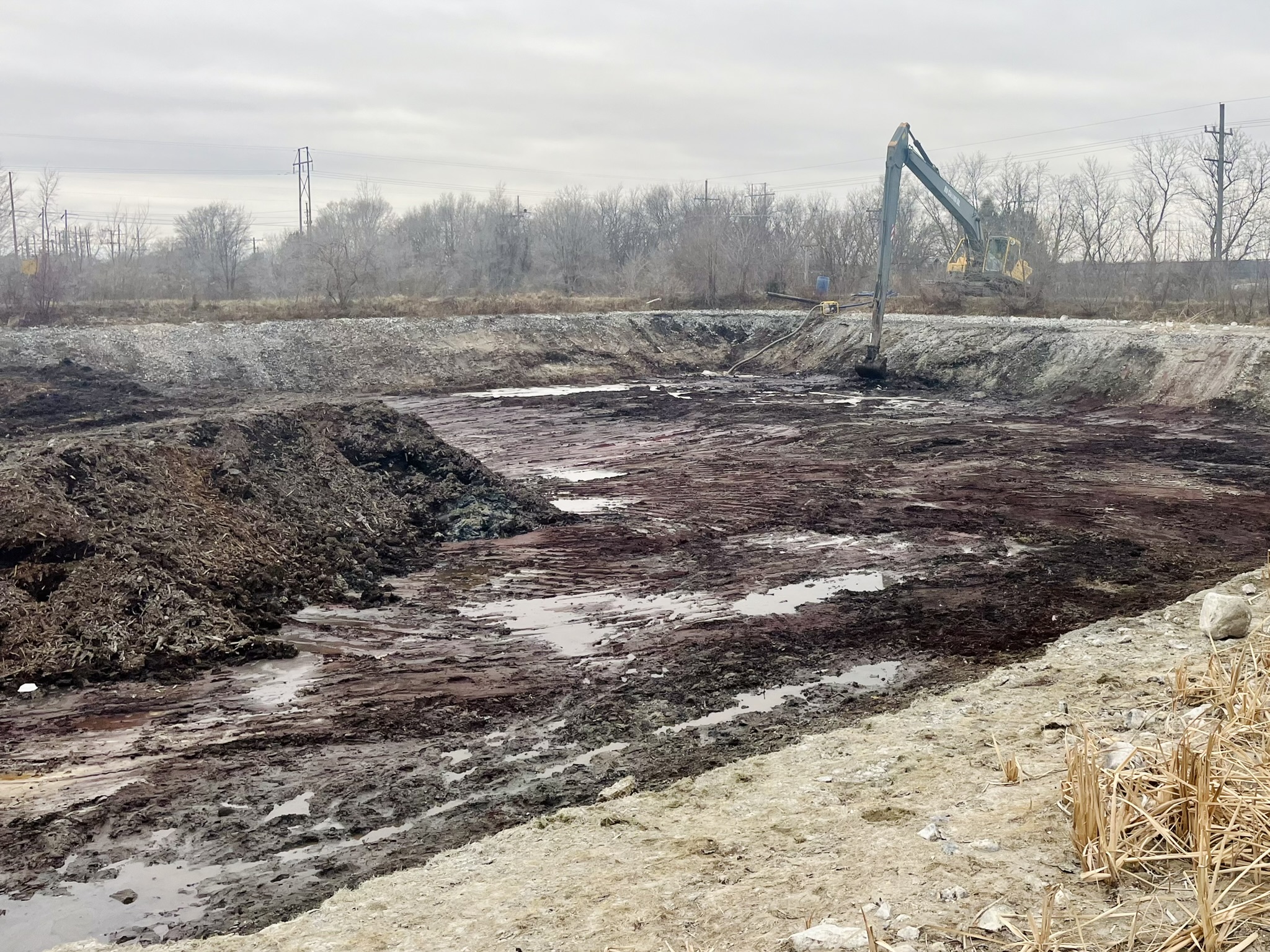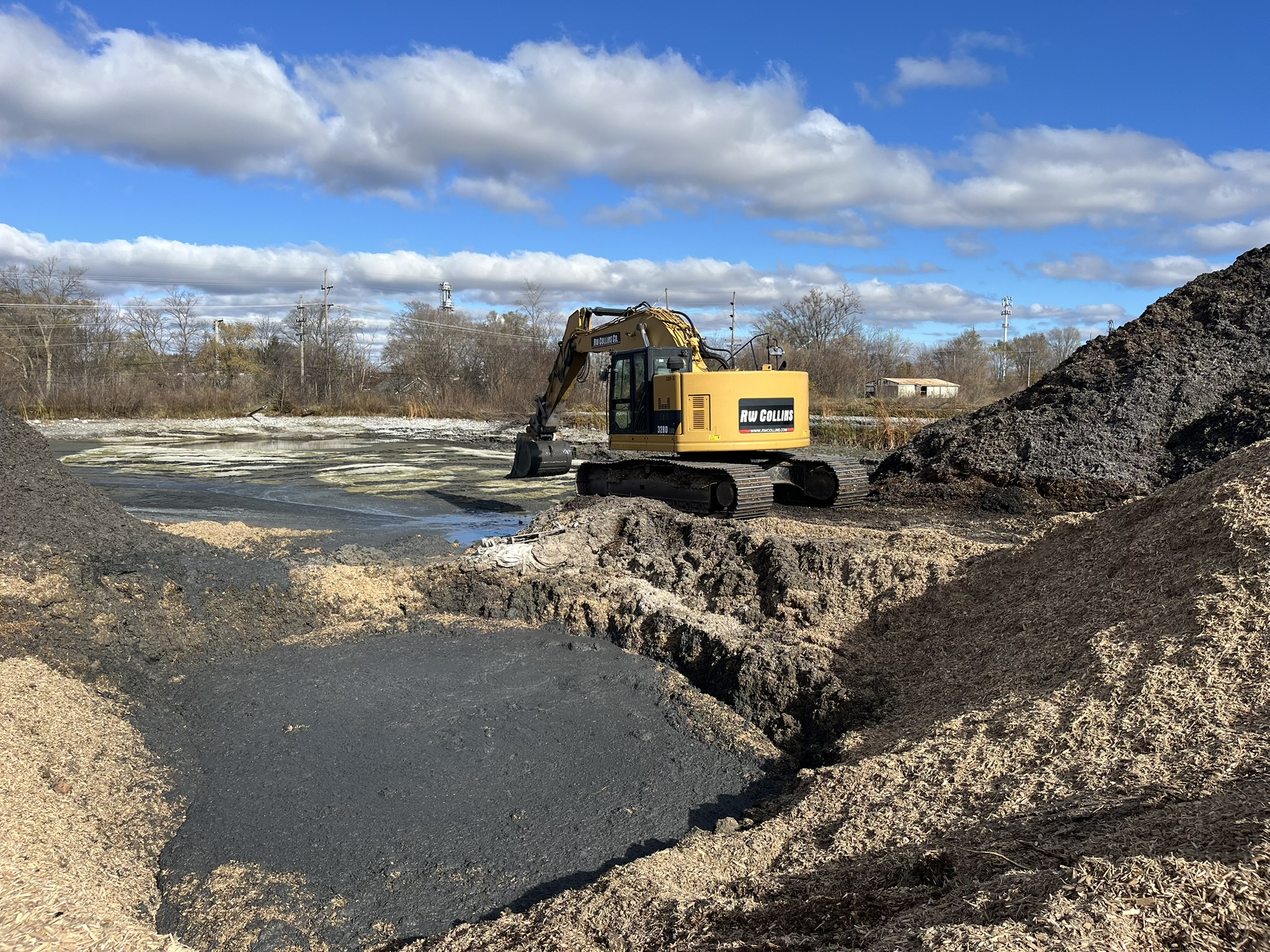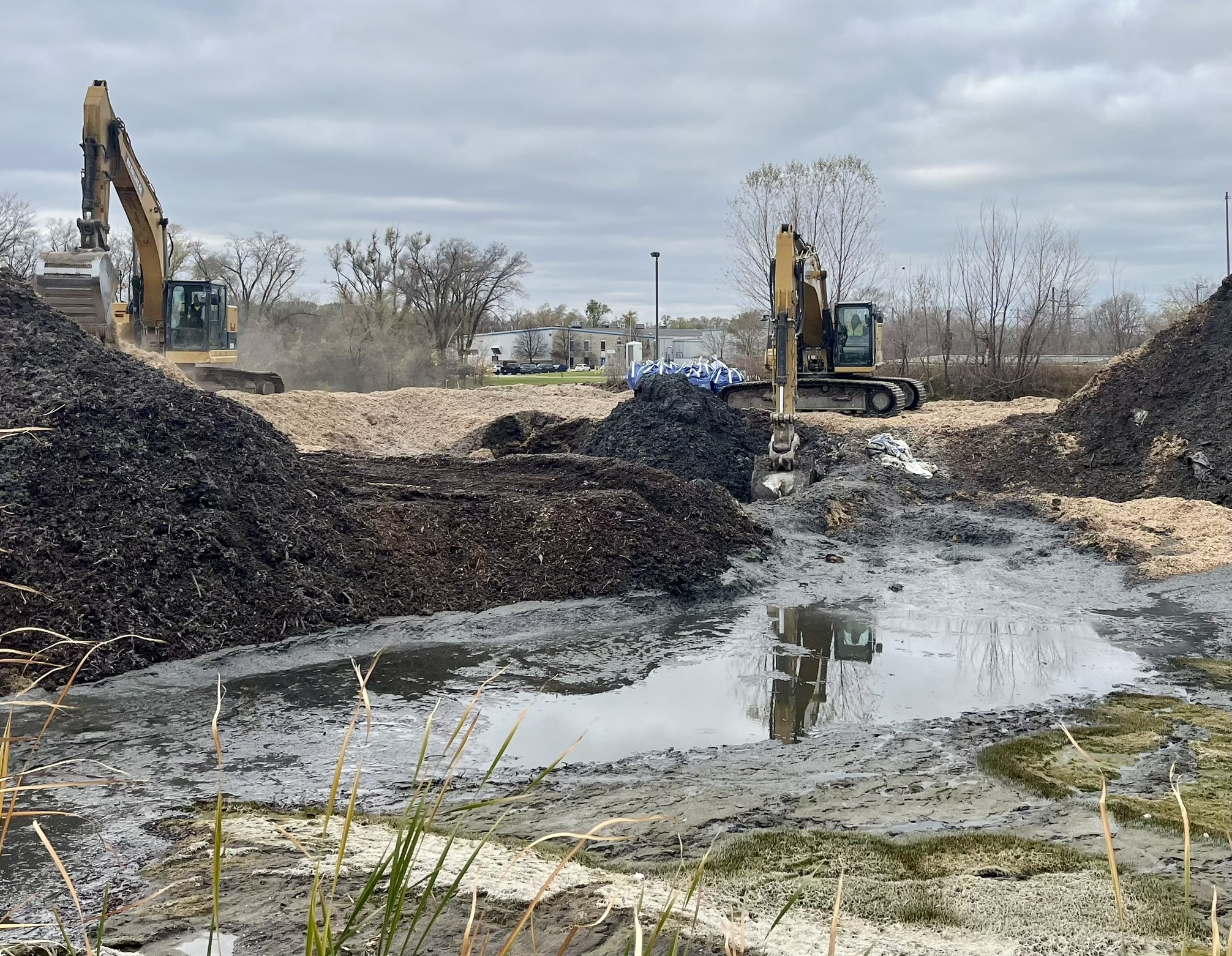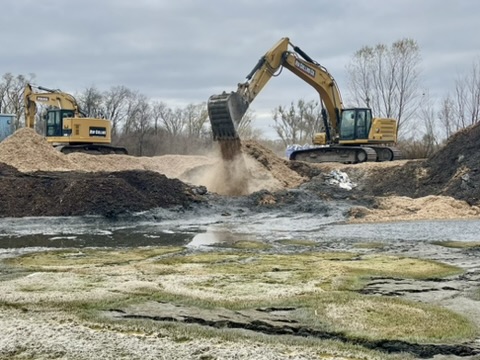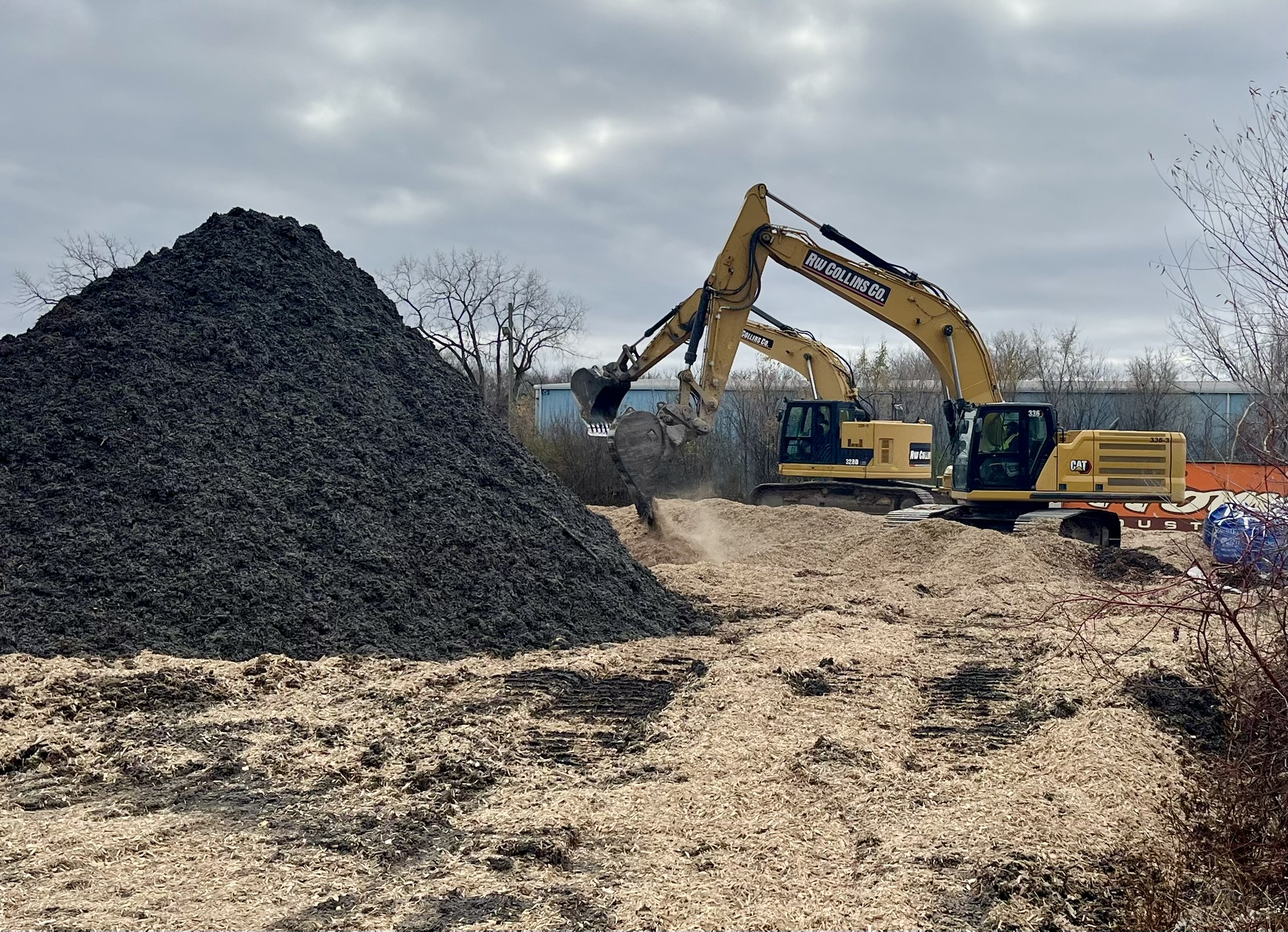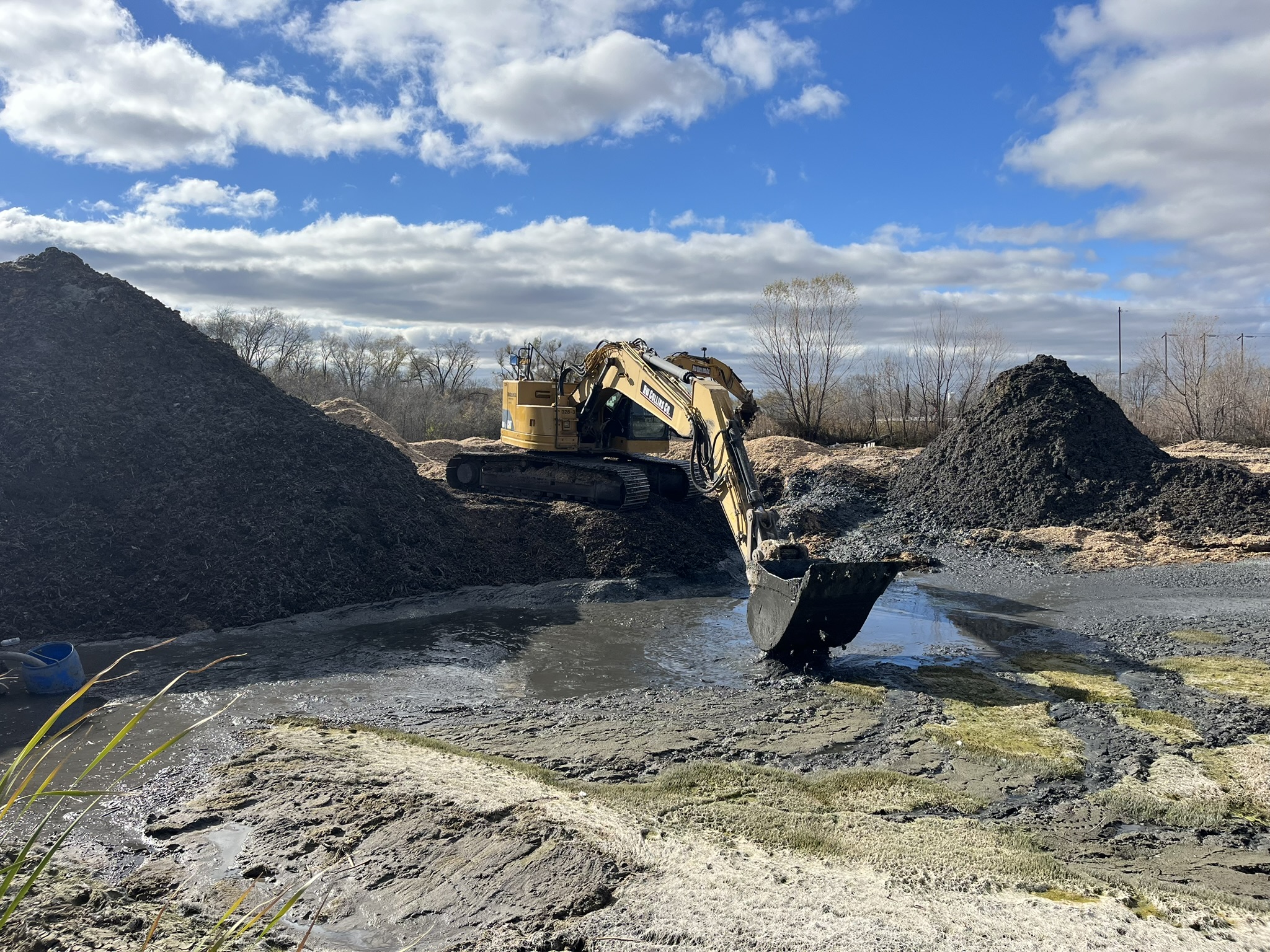To address this challenge, RWC spent nearly two months mixing the soil on-site with wood chips and lime to prepare it for transportation and disposal. This process helped reduce the water content in each load by bulking the sludge with wood chips and facilitating evaporation through the use of lime powder. During this phase, RWC imported over 9,800 cubic yards of wood chips, averaging approximately 340 cubic yards per day. As we entered the final phase of the mixing process, we began preparing to haul the material to the landfill.
We began a concerted effort in early December to remove all excavated material from the site. Within two weeks, we successfully hauled over 7,000 tons of soil and sludge to an off-site disposal facility. On average, RWC transported and disposed of approximately 800 tons of material per day, or about 40 truckloads daily.
Once the retention ponds were thoroughly cleaned and decommissioned, grading and site preparation began for landscaping restoration. The roughly 65,000-square-foot area required an estimated 200 pounds of seed mix to restore the former ponds to a grass-covered landscape.
This project greatly benefited from the mild conditions of the past fall and early winter, as well as excellent coordination among the client, environmental consultant, and contractors. We completed it on time, to the client’s satisfaction, and, most importantly, safely and without incident.
Project Facts:
- Over 9,800 Cubic Yards of Wood Chips imported for bulking
- Over 7,000 tons of non-hazardous soil were excavated and disposed of off-site
- Three operators and five laborers on site
- Excavators: CAT 328, CAT 330, CAT 336, Volvo EC240 long stick
- Skid Steer: CAT 299


